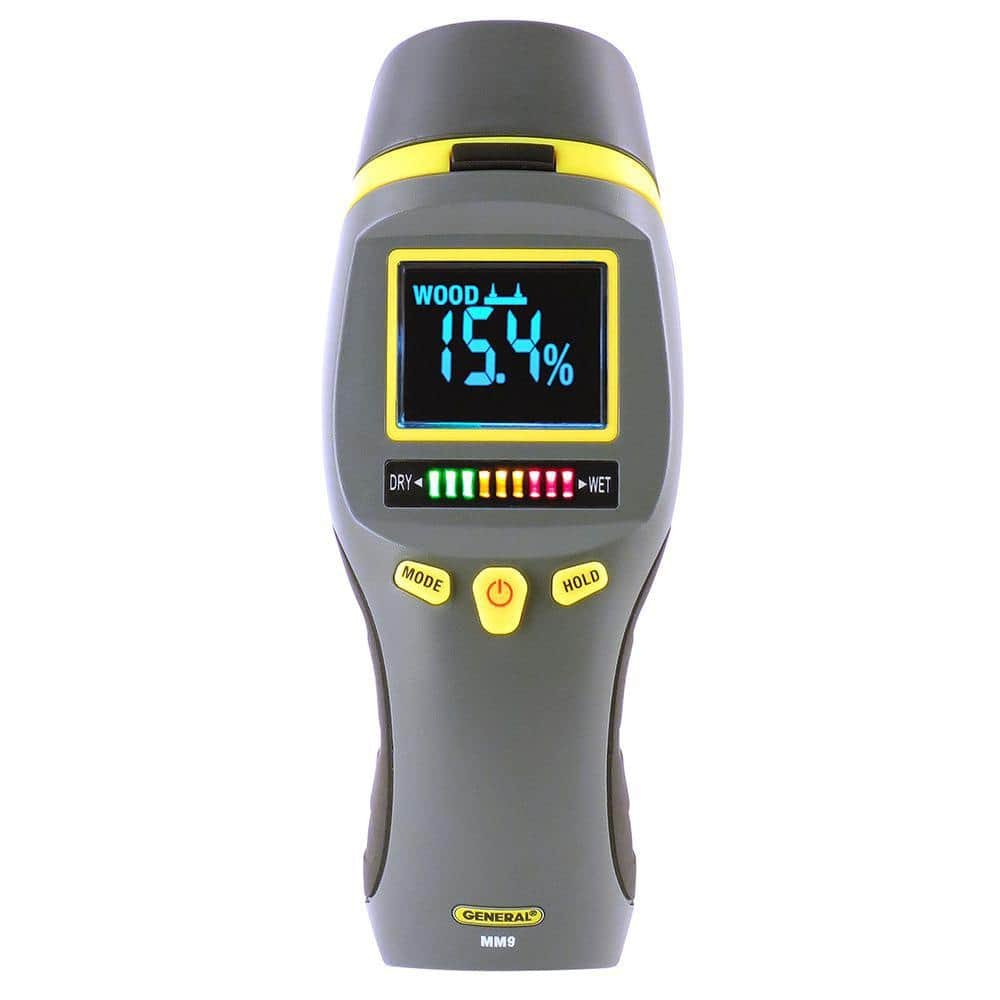Leading 10 Benefits of Using a Moisture Meter for Exact Measurements in your house
Leading 10 Benefits of Using a Moisture Meter for Exact Measurements in your house
Blog Article
The Ultimate Guide to Moisture Meters: A Comprehensive Overview and How They Can Conserve You Cash
In the realm of building upkeep, building and construction, and different markets, the importance of accurately gauging wetness levels can not be overemphasized. Wetness meters act as essential devices in identifying and keeping an eye on moisture material in products, helping in stopping expensive damages and ensuring the high quality of products. Understanding the subtleties of different sorts of wetness meters, their applications, and the potential cost-saving advantages they provide can be a game-changer for companies and professionals alike. Uncovering exactly how these tools can not only streamline procedures but likewise add to monetary savings is a journey worth starting.
Types of Moisture Meters
One typical kind is the pin-type dampness meter, which measures the electric resistance in between two pins inserted into a product. Pinless dampness meters, on the other hand, use electro-magnetic sensing unit plates to check a larger area without triggering damages to the product's surface.
Infrared dampness meters determine the thermal residential properties of a product to identify its moisture web content non-invasively, making them valuable for applications where pin or pinless meters might not be appropriate. Understanding the various kinds of wetness meters available can aid sectors select the most suitable device for their certain wetness measurement requirements.

Advantages of Utilizing Moisture Meters

Moreover, utilizing wetness meters can lead to boosted energy effectiveness. In agricultural settings, dampness meters play an essential function in maximizing plant yields by allowing farmers to keep an eye on soil wetness levels and make informed irrigation choices.
Just How to Choose the Right Moisture Meter
Picking the proper moisture meter entails thinking about crucial aspects such as product compatibility, dimension range, and calibration precision. When choosing a moisture meter, it's important to guarantee that the meter appropriates for the specific product you will certainly be testing. Various materials have differing electric buildings that can affect dampness analyses, so picking a meter designed for your material is crucial for exact outcomes. In addition, think about the dimension variety of the dampness meter. Make sure that the meter can detect dampness degrees within the variety needed for your applications. Calibration accuracy is an additional vital factor to remember (Moisture Meter). Go websites with a wetness meter with dependable calibration to make certain consistent and exact analyses. Some meters may need routine calibration adjustments, so comprehending the calibration procedure is very important. By very carefully evaluating these elements, you can pick a moisture meter that meets your requirements and gives accurate wetness dimensions for your tasks.
Proper Techniques for Moisture Meter Usage
To make sure exact dampness readings and take full advantage of the efficiency of a dampness meter, utilizing appropriate strategies is essential. When utilizing a pin-type wetness meter, place the pins or probes right into the product being examined till they make complete call. By complying with these appropriate methods, individuals can rely on their moisture meter to offer trustworthy moisture levels, helping in stopping pricey damages or making certain high quality in various applications.

Expense Financial Savings Via Moisture Meter Applications
How can the calculated application of moisture meters lead to significant expense financial savings throughout numerous sectors? In the agriculture industry, moisture meters aid in figuring out the optimum time for collecting plants, preventing over-drying or excess wetness that can affect the final product's high quality.

In addition, in the food handling sector, dampness meters are essential for keeping track of product quality and guaranteeing compliance with safety policies. By precisely measuring moisture content in food products, manufacturers can Resources prevent spoilage, maintain quality, and lower waste, causing substantial expense savings. In general, the tactical application of moisture meters is a valuable financial investment that can cause considerable cost decreases and boosted effectiveness across various sectors.
Final Thought
In final thought, moisture meters are valuable devices for finding and determining dampness levels in numerous products. By utilizing the right dampness meter and complying with proper strategies, individuals can effectively protect against expensive damages created by excess wetness. Spending in a see here high quality moisture meter can bring about considerable price savings over time by determining potential problems early on and allowing punctual removal. Eventually, dampness meters are essential instruments for maintaining the honesty and longevity of frameworks and materials.
Moisture meters serve as crucial tools in discovering and checking moisture content in materials, helping in protecting against pricey damages and guaranteeing the high quality of items. Infrared dampness meters determine the thermal homes of a product to establish its dampness web content non-invasively, making them useful for applications where pin or pinless meters might not be ideal.Dampness meters supply invaluable advantages in accurately keeping an eye on and analyzing dampness degrees in varied products and atmospheres. In agricultural settings, moisture meters play an important function in enhancing crop yields by enabling farmers to monitor dirt dampness degrees and make notified irrigation decisions.In conclusion, moisture meters are beneficial devices for finding and determining moisture levels in numerous products.
Report this page